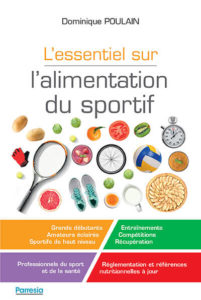Effet des Caroténoïdes alimentaires sur le statut inflammatoire chez des patients polyarthritiques
Dietary Beta-Cryptoxanthin and inflammatory polyarthritis : results from a population-based prospective study.
Auteur(s): Pattison D.-J., Symmons D.-P., Lunt M., Welch A., Bingham S.-A., Day N.-E., Silman A.-J.
Réf.: Am J. Clin Nutr. 2005 Aug ; 82(2) : 451-5.
Adresse: Arthritis Research Campaign Epidemiology Unit, The University of Manchester, Manchester, United Kingdom
Mots clés: …
Résumé : Epidemiologic studies suggest that the antioxidant potential of dietary carotenoids may protect against the oxidative damage that can result in inflammation.
Objectif : We investigated the hypothesis that some dietary carotenoids are associated with a reduced risk of developing inflammatory polyarthritis (IP).
Design : The European Prospective Investigation of Cancer Incidence (EPIC)-Norfolk study is a population-based, prospective study of >25,000 subjects who completed a baseline 7-d diet diary and were followed up to identify new cases of IP, which was defined as synovitis that affected > or = 2 joint groups. Dietary carotenoid intakes were computed from the diet diaries of these subjects, and a nested, case-control analysis was undertaken to compare carotenoid intake between case subjects and age- and sex-matched control subjects.
Résults : Eighty-eight incident cases of IP that occurred in the population surveyed were ascertained via the Norfolk Arthritis Register. The mean daily intakes of zeaxanthin and beta-cryptoxanthin were 20% and 40% lower, respectively, in the cases than in the 176 controls, but there were no significant differences in the intakes of either lutein or lycopene. Those subjects in the top one-third of intake of zeaxanthin and beta-cryptoxanthin were at a lower risk of developing IP than were subjects in the lowest one-third [odds ratios (95% CI): 0.48 (0.24, 0.94) and 0.51 (0.25, 1.02) for zeaxanthin and beta-cryptoxanthin, respectively]. The association with beta-cryptoxanthin was significant after adjustments were made for total energy and protein intakes and for cigarette smoking.
Conclusion : These data are consistent with previous evidence showing that a modest increase in beta-cryptoxanthin intake, equivalent to one glass of freshly squeezed orange juice per day, is associated with a reduced risk of developing inflammatory disorders such as rheumatoid arthritis.
Fiche Pratique
Lycopène ? Peut-être ; Tomate ? Sans aucun doute. (Pdf, 1 page, 1,57 Mo).
Source : www.aprifel.com
Santé et Performance

Notre Société savante a pour mission de promouvoir la Nutrition du sport, dans un objectif de protection de la santé, de recherche de performance, et de prévention des conduites addictives.
Nous proposons des colloques et des journées de formation, fondés sur une actualisation des connaissances scientifiques...
> Santé et Performance

